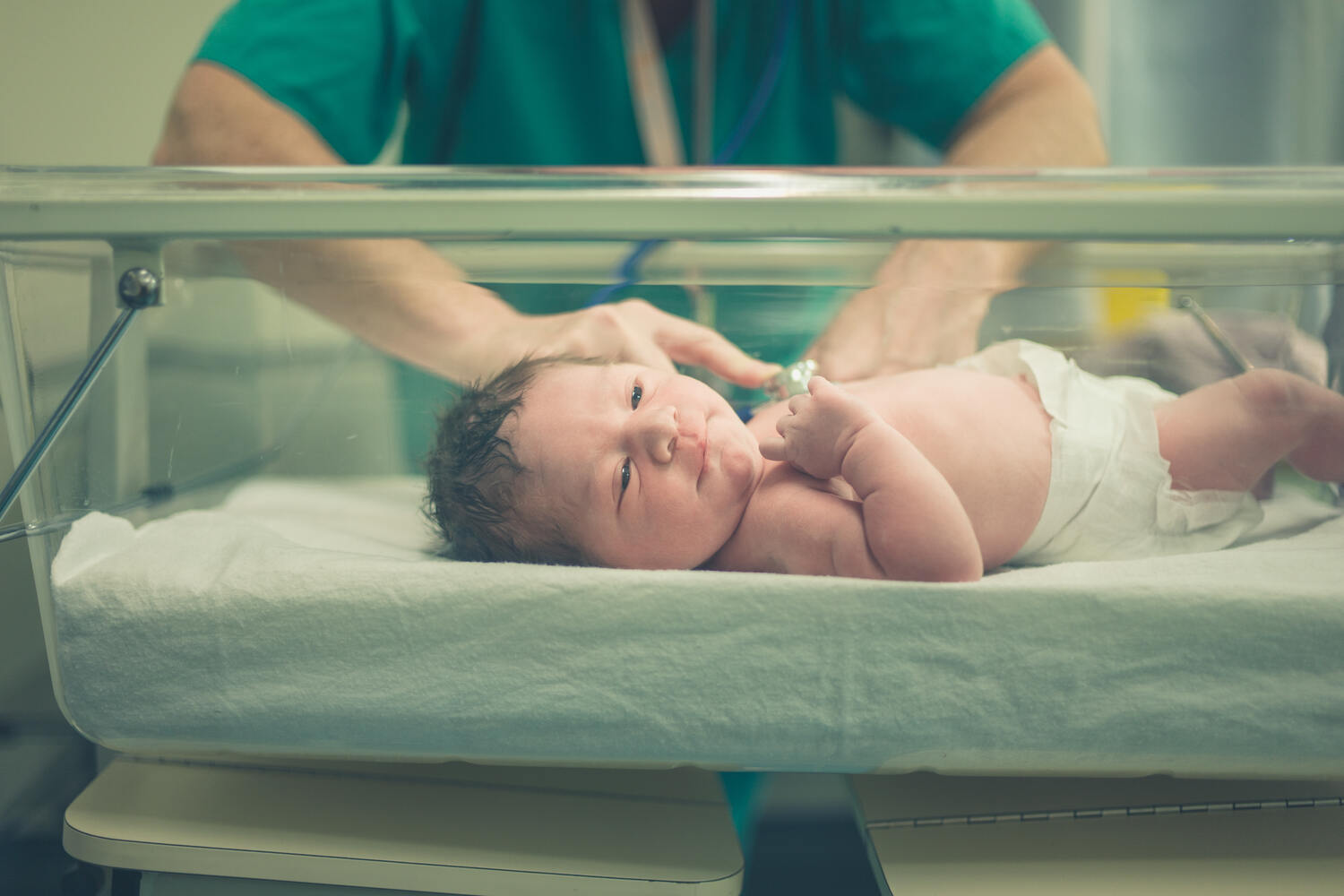
Can I Get Pregnant If I Have Diabetes?
6 min readWritten by Dr Nihan Khan


Diabetes is a chronic condition that occurs either when the pancreas does not make enough insulin or when the body does not effectively utilize the insulin it produces. Insulin is the hormone that regulates blood sugar (glucose) levels. “Can I get pregnant if I have diabetes” is a common question among diabetic women.
If you are suffering from diabetes and wondering whether you can get pregnant, this article is for you. While diabetes comes with its own set of problems and complications, proper care and precautions can make pregnancy possible. Here is everything you need to know about how diabetes affects fertility and how you can get pregnant if you are diabetic.
In This Article
- Can I Get Pregnant With Diabetes?
- How Does Having Diabetes Affect My Chances of Getting Pregnant?
- Why Is It Important To Control Blood Glucose Levels Before Conceiving?
- Can Diabetes Cause Complications For Conception And Pregnancy?
- How to Keep Diabetes in Check Before Getting Pregnant?
- What Should Be My Target Blood Glucose Levels For Achieving Pregnancy?
- How Does Having Diabetes Affect my Future Baby’s Health?
- FAQ’s
Can I Get Pregnant With Diabetes?
If the blood sugar levels are well controlled, then, there is a good chance of getting pregnant. Most women with diabetes give birth to healthy babies. It is very important to start controlling your diabetes before you plan a child. This is because most of your baby’s organs start forming during the first trimester of your pregnancy.
If you are not actively controlling your sugar levels, then, by the time you realize you are pregnant – usually in the 6-8 weeks – most of your baby’s organs would be completely formed. If you were diabetic during this period, the chances of birth defects in your child increase by many folds. Hence, there is a need to manage and control diabetes well in advance before trying to get pregnant. A thorough check-up with an endocrinologist might help in planning your pregnancy.
How Does Having Diabetes Affect My Chances of Getting Pregnant?

Type 1 and Type 2 diabetes, if badly controlled, reduce the chances of getting pregnant. Type 2 diabetes has an association with obesity, which in turn affects fertility. Obesity is linked to irregular periods and a condition known as Polycystic ovarian syndrome(PCOS). PCOS results in ovulation disturbances and irregular menstrual cycles. Some studies demonstrated a decrease in the ovarian reserve in women with Type 2 Diabetes (1)
Type 1 diabetes can also cause menstrual issues like heavy bleeding, irregular cycles, and longer cycle length i.e. more than 31 days. They can lead to ovulation irregularities, affecting fertility. It is known that women with Type 1 diabetes frequently have amenorrhea and infertility (2).
Why Is It Important To Control Blood Glucose Levels Before Conceiving?
It is very important to start controlling your diabetes before you plan a child. This is because most of your baby’s organs start forming during the first trimester of your pregnancy. If you are not actively controlling your sugar levels, then, by the time you realize you are pregnant – usually in the 6-8 weeks – most of your baby’s organs would be completely formed. If you were diabetic during this period, the chances of birth defects in your child increase by many folds.
Can Diabetes Cause Complications For Conception And Pregnancy?
Pregnancy can make blood sugar levels unstable. This requires frequent glucose level monitoring. Certain other complications of diabetes can make pregnancy a bit difficult. They are
- Pre-eclampsia or high blood pressure during pregnancy can be detrimental to both the mother and the baby and might need early delivery.
- Preterm delivery can be a possibility in diabetic mothers.
- Difficulty in labor owing to the large size of the baby and a big head.
- Pregnancy loss or stillbirths. Pregnancy loss is higher in diabetic mothers as compared to the non-diabetic population (3).
- Polyhydramnios or increased amounts of amniotic fluid.
- Birth defects in the heart, brain or spine due to uncontrolled sugar can be a complication.
How to Keep Diabetes in Check Before Getting Pregnant?

Controlling blood sugar before planning for a baby is a great step. It helps reduce undue complications in both the mother and the baby. It is important to get support from your doctor regarding insulin and diabetic medications. Adjusting your diet along with getting regular blood tests is essential.
Some important steps to be taken are:
- Do a pre-pregnancy test to assess your blood sugar levels. This will help you to plan diet changes.
- Get your HbA1c levels done that will give you an idea about average blood glucose levels over the last 2 months.
- Check with your doctor if you can continue your current diabetic medications while trying to get pregnant. You will most likely be advised to switch to insulin injections.
- Take folic acid supplements regularly after consulting your doctor. Regular intake of folic acid helps prevent neural tube defects.
- Diabetic mothers have a higher chance of giving birth to babies with such defects. Hence, a higher dose of folic acid is recommended.
- Smokers must quit smoking as it increases the complications of diabetes in the eyes, heart and kidneys.
- Dietary adjustments along with regular exercises must be considered.
What Should Be My Target Blood Glucose Levels For Achieving Pregnancy?
Before getting pregnant, the target blood glucose levels should be
- 60-120 mg/dl (fasting, taken first thing in the morning)
- 100-150 mg/dl (taken one hour after a meal)
- HBA1c less than 6.5%.
These ranges might vary a little depending on the country and health protocol your doctor is following.
Along with reaching the target blood glucose levels as prescribed by your doctor, you must also lead a healthy lifestyle to reduce further complications in pregnancy. Some studies suggest that a good preconceptional control of blood glucose resulted in reduced incidence of spontaneous abortions and congenital abnormalities (4).
How Does Having Diabetes Affect my Future Baby’s Health?

The baby of a diabetic mother can be affected due to the high sugar levels of the mother. Some possibilities are
1. High Birth weight
During pregnancy, glucose can pass on from the mother to the baby through the placenta. On the other hand, insulin cannot cross this barrier. So in a diabetic mother, this extra glucose passes on to the fetus, causing high sugar levels in it. This causes the baby’s pancreas to produce more insulin, which makes the baby grow faster and bigger than usual. A larger baby can cause difficulties in birth. There can be possibilities of birth injuries during delivery.
2. Hypoglycemia
Babies may be at a higher risk of developing hypoglycemia, that is low blood sugar at birth. This is due to the production of extra insulin for a few hours after birth. Severe hypoglycaemia can happen in babies born to mothers who were using insulin before and during pregnancy (5).
3. Electrolyte Imbalance
Apart from abnormal sugar levels, there can be a few electrolyte disturbances like low magnesium or low calcium. This can cause seizures in babies.
4. Hypoxia
There can be low oxygen levels or breathing difficulties in babies of a diabetic mother. They are at a greater risk of developing respiratory distress (6).
So, if you are diabetic and planning a pregnancy, then start pushing yourself towards a healthy lifestyle. Controlling your weight along with staying active can help you have a baby. Diabetic women can get pregnant if, along with lifestyle modifications, they keep their blood sugar within the target range.
FAQ’s
1. How Can a Diabetic Get Pregnant?
There are good chances of getting pregnant and having a baby if the diabetic woman keeps her blood sugar in check before planning for a pregnancy. Following a healthy lifestyle with a healthy diet and regular exercise also increases the chances.
2. Can a Diabetic Have a Normal Delivery?
Many times, vaginal delivery is possible for a diabetic mother. But in a few cases, a cesarean section might be needed, owing to the large size and big head of the baby.
3. Is it Safe to Get Pregnant With Diabetes?
Yes, it is safe to get pregnant with diabetes as long as the blood glucose is under control with the regular use of diabetic medications or insulin.
4. How to Control Diabetes Before Getting Pregnant?
Maintaining a healthy lifestyle, eating healthy, staying active and maintaining a healthy weight helps in controlling blood sugar before getting pregnant. Avoiding stress is another contributory factor.
References
- Fertility outcomes in women with pre-existing type 2 diabetes—a prospective cohort study – ScienceDirect – [https://www.sciencedirect.com/science/article/pii/S0015028221001278]
- Diabetes: a metabolic and reproductive disorder in women – The Lancet Diabetes & Endocrinology – [https://www.thelancet.com/journals/landia/article/PIIS2213-8587(19)30345-6/abstract]
- Adverse pregnancy outcomes in women with diabetes | Diabetology & Metabolic Syndrome | Full Text – [https://dmsjournal.biomedcentral.com/articles/10.1186/1758-5996-4-41]
- Factors Influencing Preconception Control of Glycemia in Diabetic Women | Diabetes | JAMA Internal Medicine | JAMA Network – [https://jamanetwork.com/journals/jamainternalmedicine/article-abstract/207407]
- Hypoglycemia Rates in the First Days of Life among Term Infants Born to Diabetic Mothers | Neonatology | Karger Publishers – [https://karger.com/neo/article-abstract/96/2/80/228121/Hypoglycemia-Rates-in-the-First-Days-of-Life-among]
- Offspring of diabetic pregnancy: Short-term outcomes – ScienceDirect – [https://www.sciencedirect.com/science/article/abs/pii/S1744165X08001303]

Dr Nihan Khan,MBBS,MD (Pathology)
Responses (0)
Want curated content sharply tailored for your exact stage of parenting?
Related articles

Can Assisted Hatching Improve IVF Success?

Black Raisins Water For Conceiving – Top Benefits and How to Make

Top 4 Panchakarma Therapies to Boost Fertility

Boric Acid Vaginal Suppositories When Trying to Conceive – Are They Safe?

Can You Eat Chicken When Trying to Conceive?

Bloating During Ovulation – Signs and Tips to Manage
Sponsored content
Discover great local businesses around you for your kids.
Get regular updates, great recommendations and other right stuff at the right time.





